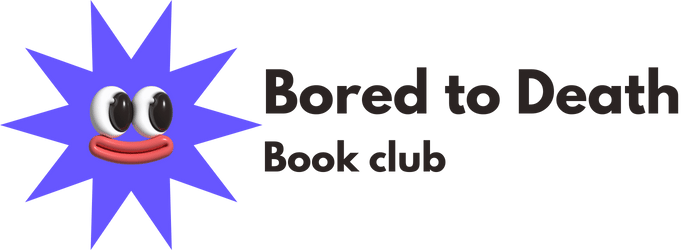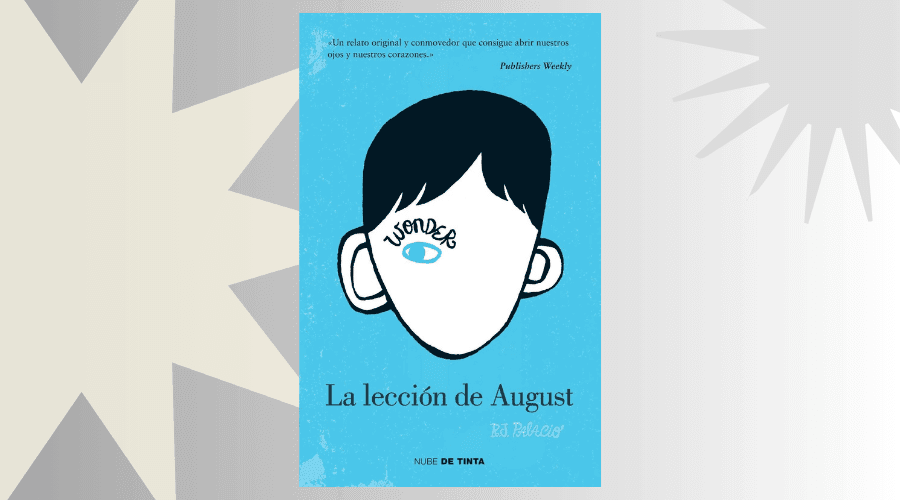Wonder by R.J. Palacio is a heartwarming novel about August Pullman, a boy with a facial difference who enters a mainstream school for the first time. Told through multiple perspectives, the story explores themes of kindness, courage, friendship, and empathy as Auggie and those around him learn the true meaning of acceptance and what it means to “choose kind.”
Wonder by R.J. Palacio – Detailed Summary
August “Auggie” Pullman is a 10-year-old boy living in New York City. He was born with Treacher Collins syndrome, a rare craniofacial condition that has required dozens of surgeries and left his face noticeably different. Because of his health, Auggie has always been homeschooled—until now. As the book opens, his parents decide it’s time for him to attend school for the first time: Beecher Prep, a private middle school.
Auggie is smart, funny, and a huge fan of Star Wars, but he’s also deeply aware that his appearance often shocks people. He’s used to stares and whispers, and he fears the cruelty kids can show. Starting fifth grade in a new environment is terrifying, but Auggie decides to face it with courage.
At Beecher Prep, the headmaster Mr. Tushman assigns three students—Jack Will, Julian, and Charlotte—to be Auggie’s welcome committee. While Jack is kind and awkwardly friendly, Julian quickly becomes the antagonist, mocking Auggie and making subtle jabs about his face. Charlotte is more performative in her friendliness—polite, but distant.
Despite early challenges, Auggie begins to settle into school life. He proves to be a bright student, and over time, he starts making real friends. But the journey isn’t smooth. A pivotal betrayal occurs when Auggie overhears Jack Will saying hurtful things about him to fit in with the popular kids. This shatters Auggie’s trust, and they fall out—but Jack later apologizes, and their friendship becomes stronger.
Family & Via’s Perspective
The story also shifts to other narrators, including Via, Auggie’s older sister. Via loves Auggie deeply, but she struggles with being in the background of their parents’ attention. She’s starting high school and navigating her own identity crisis, friendships, and feelings of being invisible. Her story adds emotional depth to the novel, showing the ripple effect of Auggie’s condition on the whole family.
Other POVs
We also hear from Summer, a kind and socially brave girl who befriends Auggie because she wants to—not because she’s told to. Then there’s Justin, Via’s boyfriend, who offers an outsider’s perspective on the Pullman family and how love holds them together. These shifting perspectives reveal how each character processes kindness, judgment, and what it means to be truly brave.
Climax & School Retreat
The climax comes during a school retreat when Auggie and Jack are ambushed by older students from another school. Surprisingly, some of Auggie’s classmates—who had previously been distant—come to his defense. This moment is a turning point. Auggie earns newfound respect and support from the larger student body.
By the end of the school year, Auggie receives the Henry Ward Beecher Medal, an award given for courage, kindness, and character. The story closes with Mr. Tushman’s speech about how Auggie’s presence changed the school for the better and taught everyone the value of empathy.
Wonder Book Review
Reading Wonder by R.J. Palacio was like having your heart broken and stitched back together on the same page. What makes this book unforgettable isn’t just August Pullman’s facial difference—it’s how raw and honest the emotional journey is. Palacio doesn’t try to make Auggie a saint or a superhero. He’s just a kid who wants what every kid wants: to belong, to laugh at lunch, to be invited to birthday parties, to not be stared at like a museum exhibit.
What struck me most was how quiet the heroism in this story is. It’s not dramatic—it’s in the way Summer chooses to sit next to Auggie without being asked, or the way Jack Will struggles and fails and grows. It’s in Via’s quiet pain, watching her family revolve around her brother while she figures out who she is. Each perspective adds a layer of truth that makes the story feel real—like these are people you might know, or be.
And that’s the magic of this book: it makes you look at others differently. You start noticing how often we categorize people by what we see, not who they are. Wonder gently but firmly pushes you to do better. To notice the kid sitting alone. To speak up when someone’s being cruel. To choose kind—even when it’s hard, or awkward, or costs you something.
It’s technically a middle-grade book, but honestly? Everyone should read it. It’s simple, but not simplistic. Emotional, but never manipulative. It made me cry, and not just because of what Auggie goes through, but because it reminded me how small actions—real, human moments of kindness—can truly change lives.
This isn’t a story you forget. It lingers. And maybe that’s the point.
Why Wonder Matters
Wonder is more than a book about a boy with a facial difference—it’s a story about empathy, compassion, and the quiet heroism of simply being kind. It doesn’t rely on dramatic plot twists or fantasy elements. Instead, it uses everyday experiences—school lunch tables, science class, hallway gossip—to paint a portrait of what it means to grow up different in a world that often fears what it doesn’t understand.
R.J. Palacio’s message is clear: “When given the choice between being right or being kind, choose kind.”
Bonus: The Movie Adaptation
In 2017, Wonder was adapted into a film starring Jacob Tremblay, Julia Roberts, and Owen Wilson. The movie stayed faithful to the book’s emotional tone and helped spread its message to an even wider audience. It’s a great companion watch after reading the book—and a conversation starter for families and classrooms.
Final Message
Wonder is a powerful, heartwarming novel that reminds readers of all ages to choose kindness, to look beyond appearances, and to appreciate the quiet strength it takes just to show up. Auggie’s story isn’t just about a boy with a facial difference—it’s about what it means to be human.

